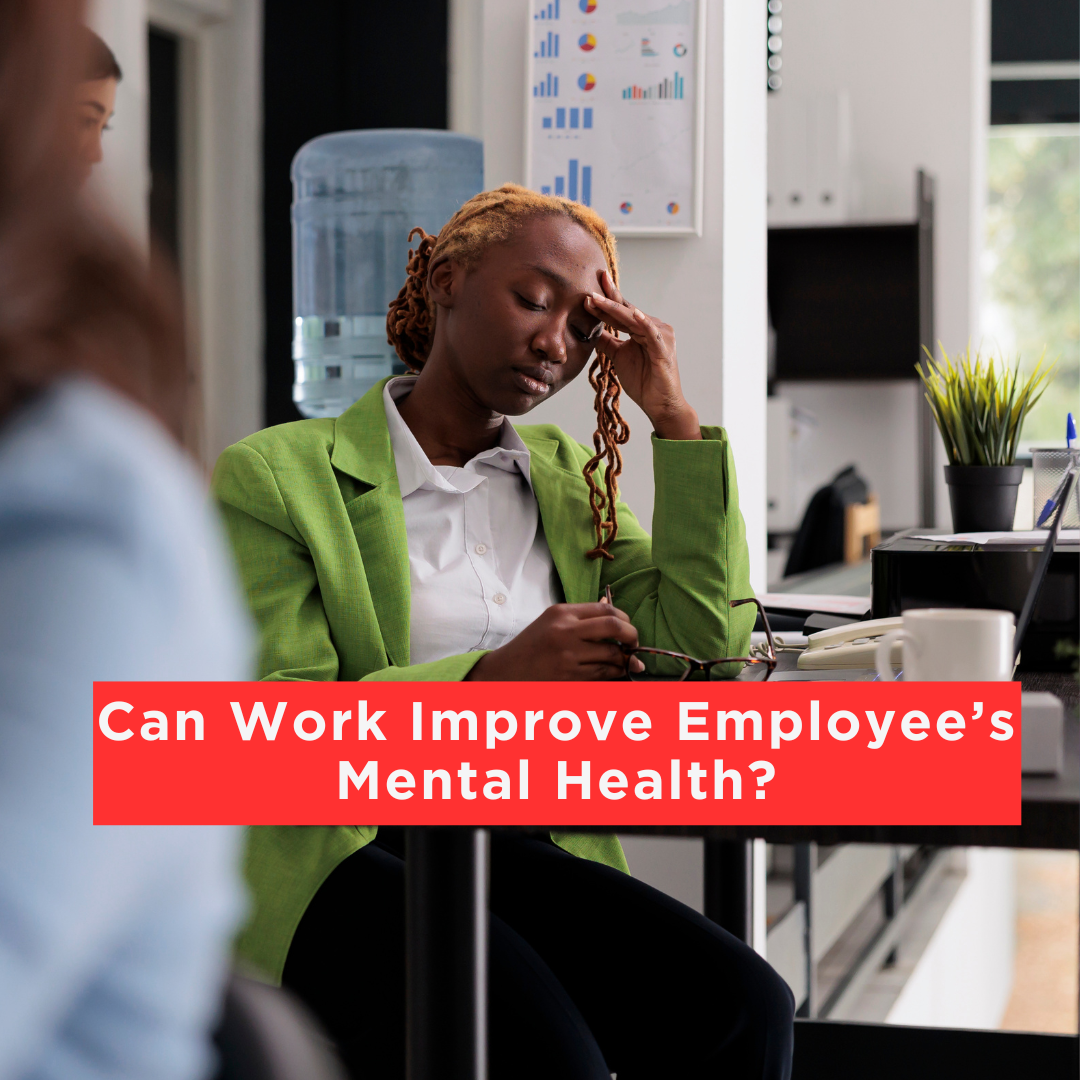Despite significant evidence indicating that workplaces frequently contribute to declines in mental health and increased stress levels, is it possible for work to function as a protective measure for our mental well-being? According to the World Health Organization (WHO), poor working conditions, which encompass factors like discrimination, inequality, heavy workloads, limited job control, and job insecurity, can significantly jeopardize mental well-being. It was estimated in 2019 that 15% of adults who were of working age were affected by mental disorders. Shockingly, the global economy loses around 12 billion working days annually due to depression and anxiety, resulting in an astounding cost of $1 trillion in lost productivity.
Related post: Common mental health issues encountered in the workplace
Nonetheless, it is significant to note that work can offer a protective shield for mental health since nearly 60% of the world’s population is involved in some form of employment. Of course, while work can indeed be a source of stress, it can also be a powerful ally in supporting and maintaining our mental health. This can only be achieved through various strategies and initiatives.
Related post: Mental health-Why companies should worry about their employees health
How Work Can Increase Our Mental Wellbeing?
The World Health Organization (WHO) asserts that decent work plays a crucial role in fostering and sustaining good mental health, providing a diverse range of advantages that reach well beyond financial security. Here are ways in which it can enhance mental well-being:
Livelihood and Financial Stability: One of the most immediate and evident ways in which work supports mental health is by providing a livelihood. A stable income ensures that individuals can meet their basic needs, reducing the stress associated with financial uncertainty. Knowing that there’s a regular paycheck can alleviate anxiety and create a sense of security.
Confidence, Purpose, and Achievement: Decent work offers individuals a platform to showcase their skills and talents. This, in turn, boosts self-confidence and self-esteem. Having a job that aligns with one’s abilities and passions instills a sense of purpose and achievement. The feeling of contributing meaningfully can have a profoundly fulfilling and uplifting impact on one’s mental well-being.
Related post: 9 habits of mentally strong people in the workplace
Positive Relationships and Inclusion: The workplace is often a microcosm of society where individuals from diverse backgrounds come together. This diversity can lead to the formation of positive relationships and a sense of belonging. Colleagues can become friends, mentors, and a valuable support system. Inclusion in a professional community fosters a feeling of being valued and accepted, reducing feelings of isolation and loneliness.
Structured Routines: The routines established by regular work can be a stabilizing force for mental health. A structured daily schedule can help individuals manage their time efficiently, reduce procrastination, and maintain a sense of order in their lives. This structure can be particularly beneficial for individuals who thrive on predictability.
Opportunities for Skill Development: Many jobs offer opportunities for continuous learning and skill development. Participating in such activities not only amplifies work performance but also invigorates the mind. This mental stimulation can ward off boredom and contribute to overall mental well-being.
Sense of Identity: Work often forms a significant part of an individual’s identity. It provides a label, a role, and a purpose in society. This sense of identity can be essential for self-worth and mental stability, as it gives individuals a place within the social fabric.
Problem-Solving and Resilience: Work challenges individuals with problem-solving tasks and decisions. Overcoming these challenges can strengthen problem-solving skills and resilience, which are valuable assets in coping with life’s inevitable ups and downs.
When we examine it closely, decent work extends far beyond merely providing income; it serves as a multi-dimensional factor in fostering a supportive atmosphere for mental well-being, underscoring the complex interplay between work and mental health.
Related post: Recognizing the signs of stress on your mental health
Preventing mental health issues in the workplace involves effectively addressing psychosocial risks. The implementation of organizational interventions that specifically target working conditions and the work environment can be accomplished by Employers, HR managers, and HSE personnel. These interventions encompass strategies that assess and subsequently alleviate, modify, or eliminate workplace factors that pose risks to mental health. Instances of such organizational interventions consist of providing flexible work arrangements, developing frameworks to address issues such as harassment and violence in the workplace, and partnering with Employee Assistance Programs (EAPs).
Related post: Why your employees need employee assistance program eap








No Comments